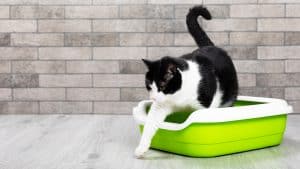As a cat owner, maintaining a clean and functional litter box is crucial for your feline friend’s health and hygiene.
The litter box is more than just a necessity; it's an integral part of your cat’s daily routine.
However, even the most diligent cat owners can face unexpected issues, such as a leaking litter box.
A leaking litter box can create a mess around the area, lead to unpleasant odors, and potentially discourage your cat from using it.
This not only affects the cleanliness of your home but can also have adverse effects on your cat’s well-being.
In this article, we will guide you through recognizing the signs of a leaking litter box, understanding the possible causes, and providing practical solutions for fixing and preventing future leaks.
We aim to help you ensure a hygienic and comfortable environment for you and your beloved cat.
Common Signs of a Leaking Litter Box
Understanding the signs of a leaking litter box is crucial to identifying the problem early and taking the necessary corrective measures.
Here are some signs that your litter box might be leaking:
1. Pools of Urine or Feces Outside the Box
This is perhaps the most obvious sign of a leaking litter box.
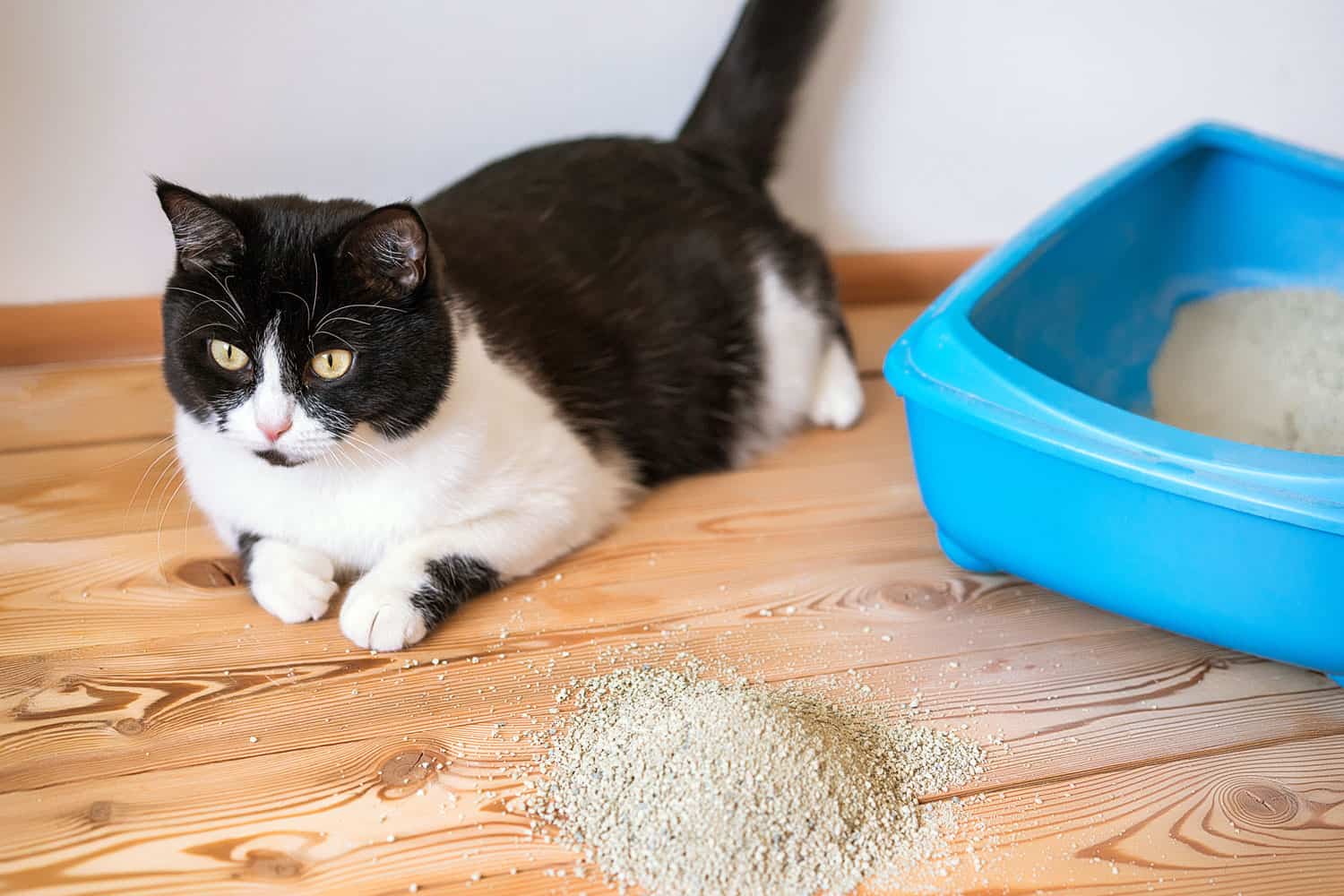
If you often find urine or feces around the vicinity of the litter box but not inside it, it could be a sign that the box is leaking.
2. Unusual Smells
A well-maintained litter box will manage odor well, but a leaking one can produce unusually strong or foul odors.
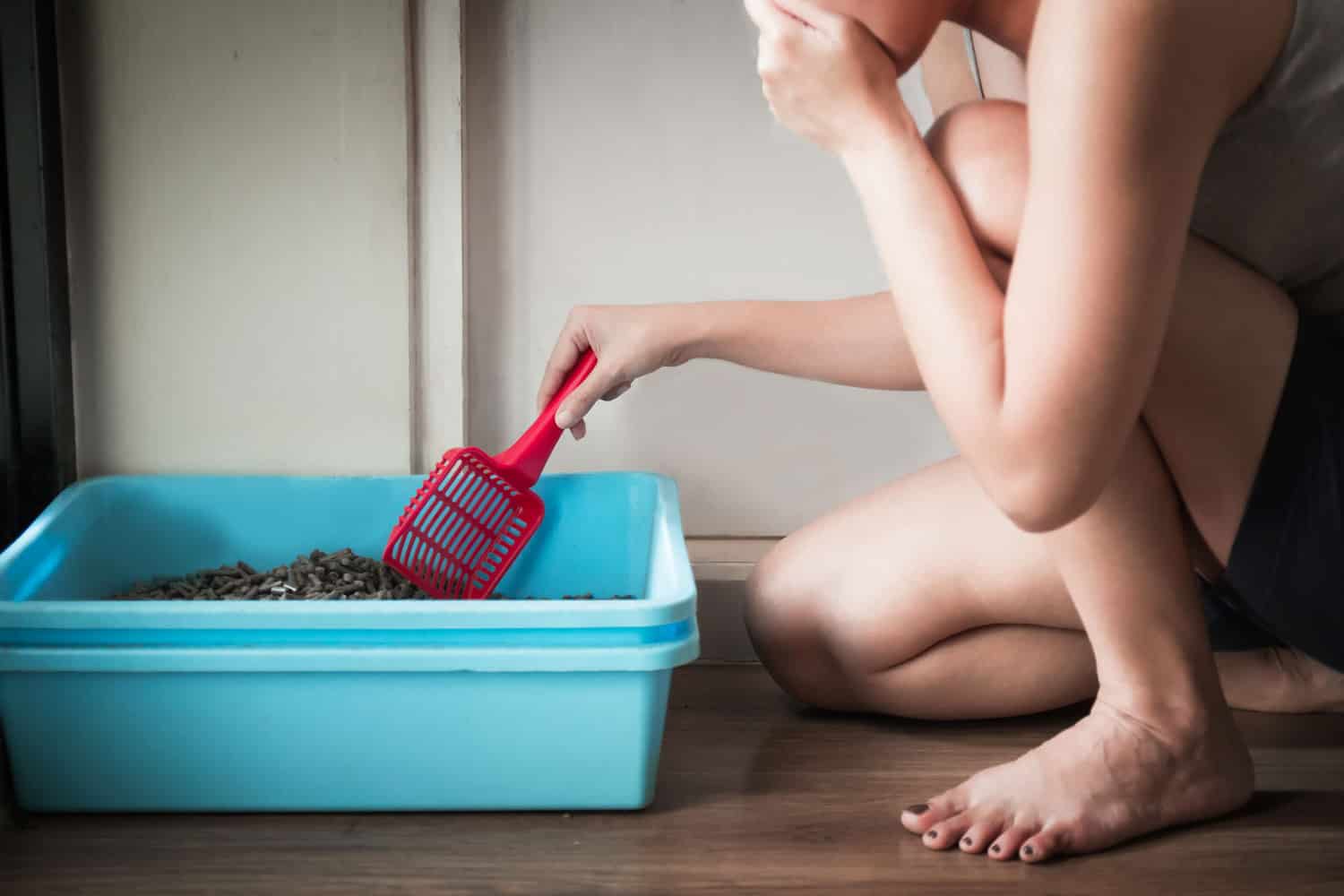
Leaks can allow urine to seep into areas where it's difficult to clean, and over time this can lead to an increased smell.
3. Damaged Flooring or Furniture
Over time, leakage from a litter box can cause damage to your floors, especially if they're made of sensitive material like wood.
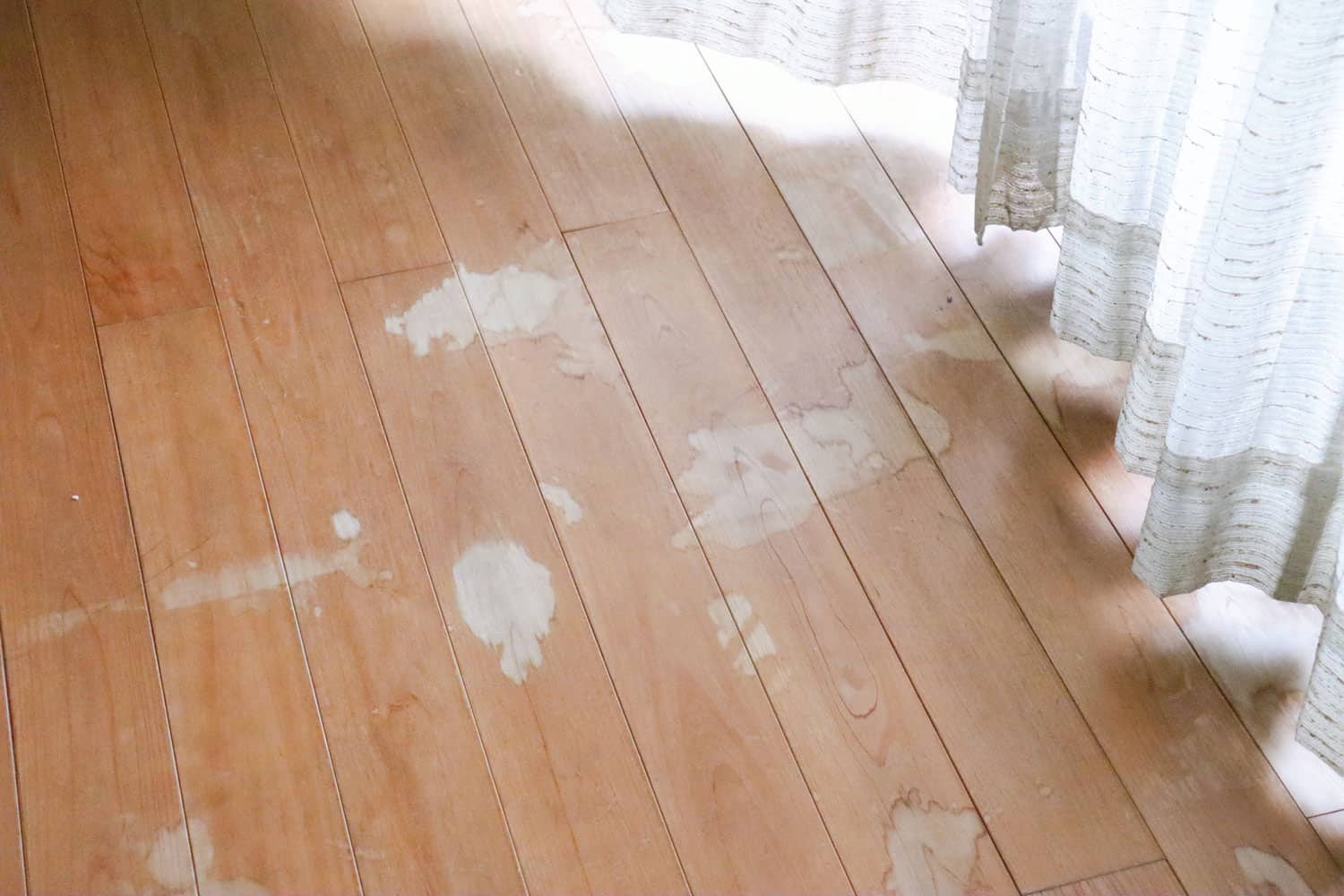
Furniture close to the box might also suffer damage.
If you see signs of water damage, discoloration, or smell near the litter box area, it's worth checking for a leak.
4. Cat Behavior Changes
Cats are very clean animals and might avoid using a leaking litter box.
If you notice that your cat has started to avoid the box or is showing signs of distress or discomfort when using it, a leak might be the problem.
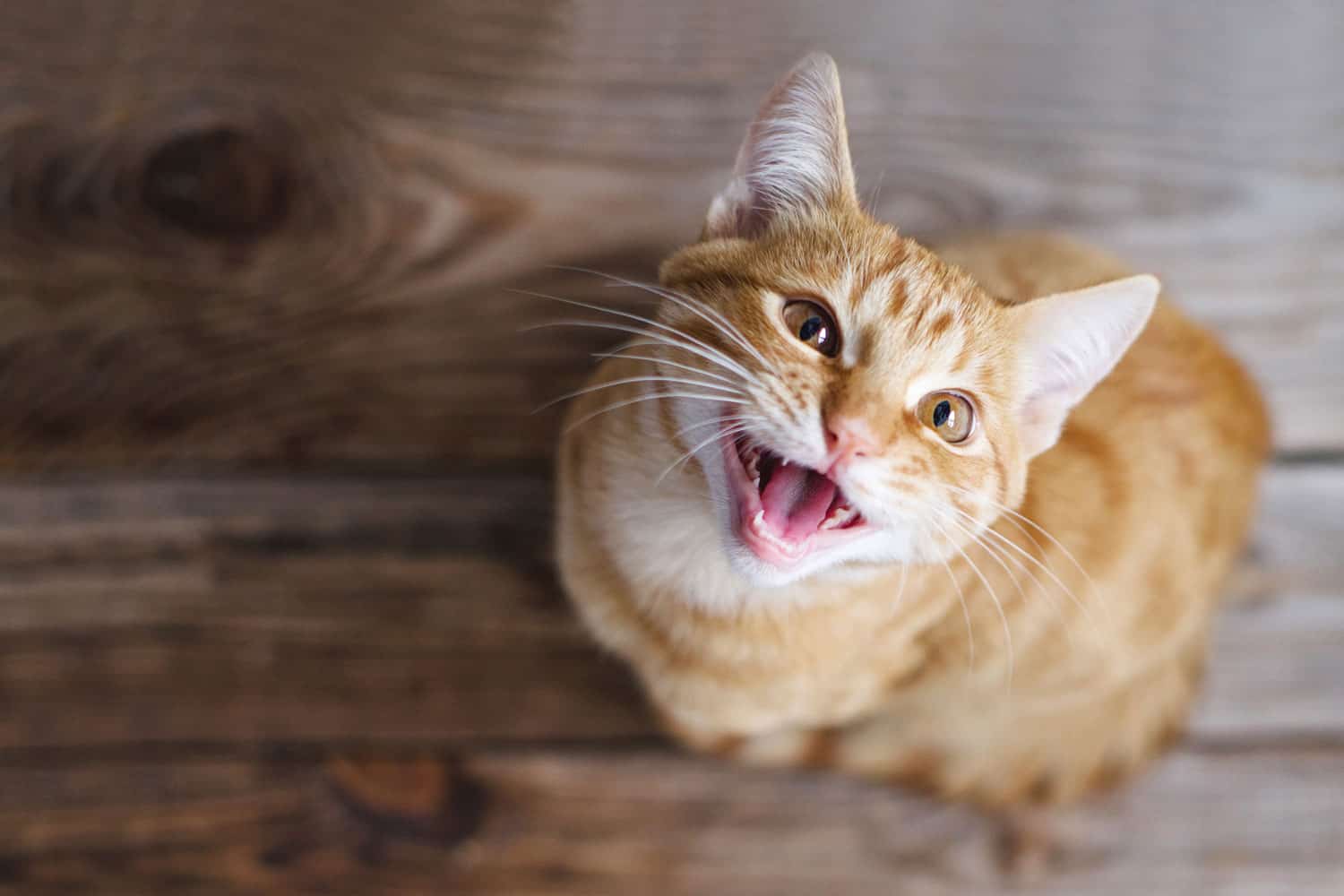
This can also lead to accidents around the house, as your cat might choose to relieve themselves elsewhere.
These signs are not definitive proof of a leak—they could also suggest other problems, like a health issue with your cat or a need for a different type of litter.
But they're a good place to start if you're trying to figure out why your litter box isn't working as it should.
Reasons Why a Litter Box Might Leak
There are several factors that can cause your litter box to leak. Understanding these factors can help you address the issue effectively.
1. Poor Quality of the Litter Box
Cheaper litter boxes may be more prone to leaks due to the use of subpar materials or design flaws.
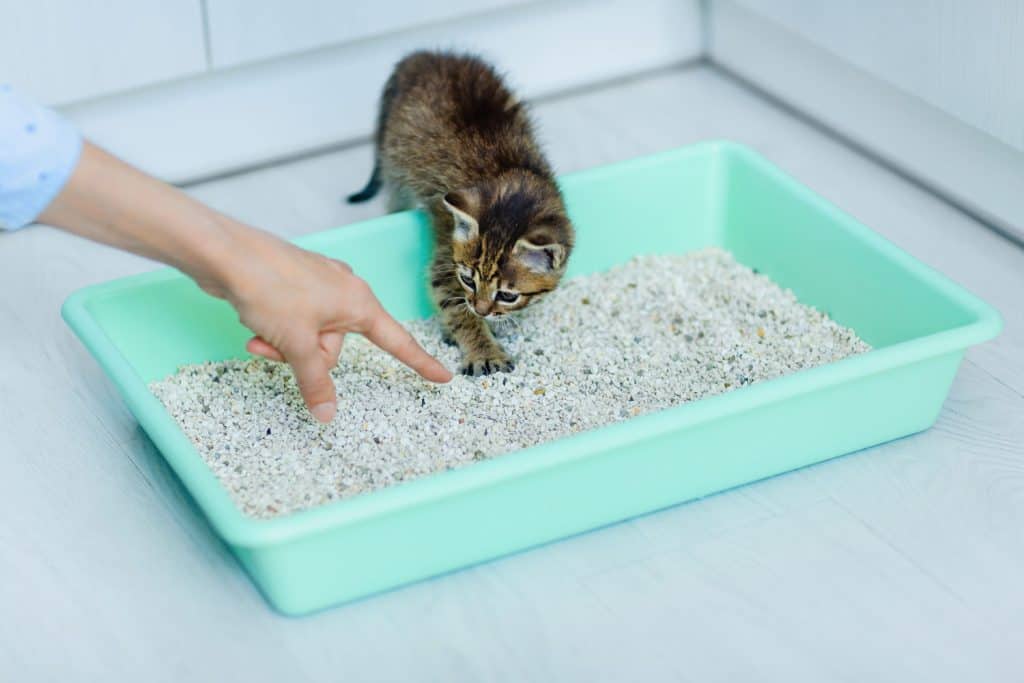
For instance, a litter box made from thin plastic might crack easily, while a poorly designed box might not contain litter and waste effectively.
2. Incorrect Size for Your Cat
The size of the litter box should be appropriate for your cat. If it's too small, your cat may end up urinating or defecating over the edges.
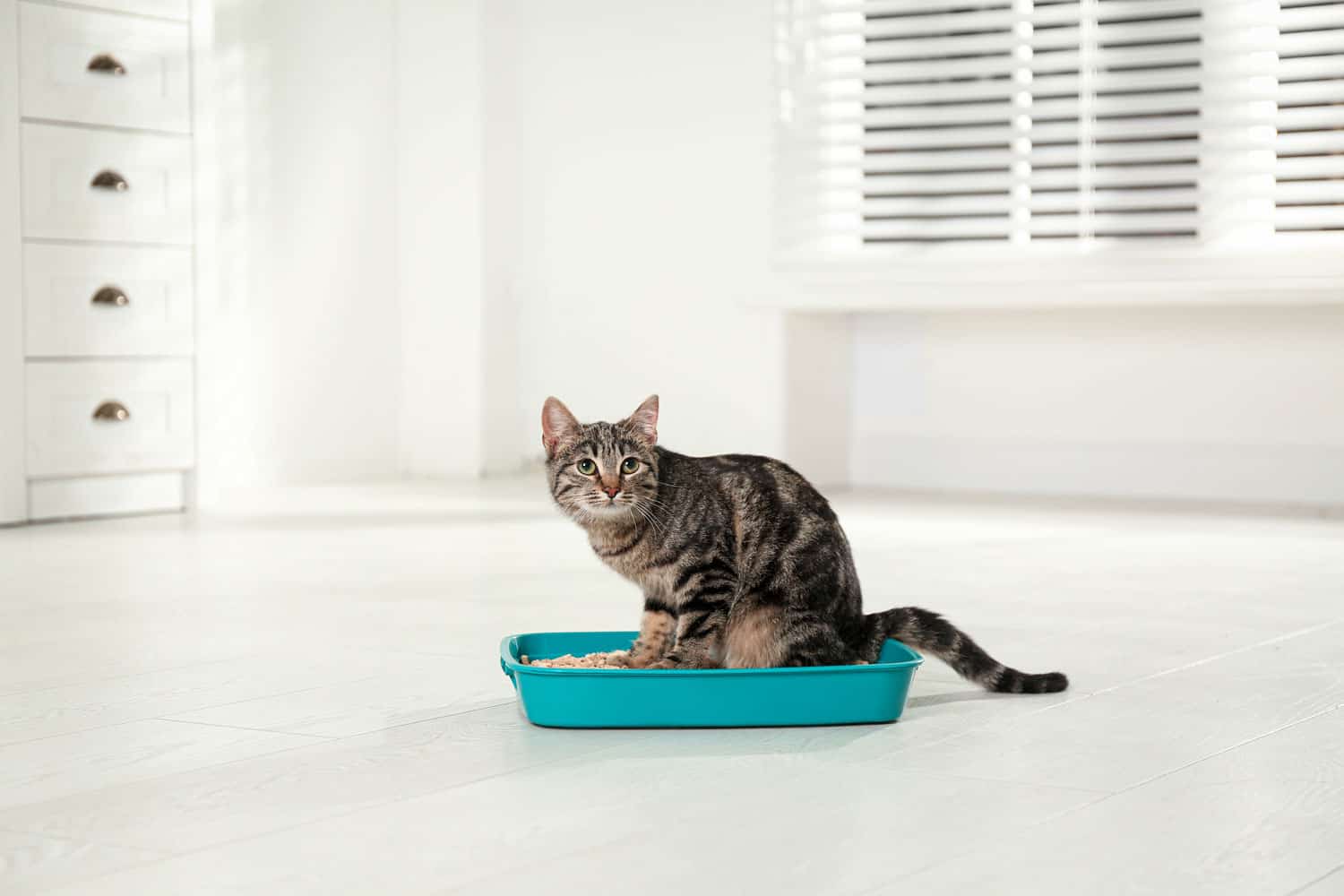
On the other hand, a litter box that's too large might be hard for your cat to enter and exit, leading them to do their business at the edge, which can result in leaks.
3. Overfilled or Underfilled with Litter
Striking the right balance with the amount of litter you use is crucial.
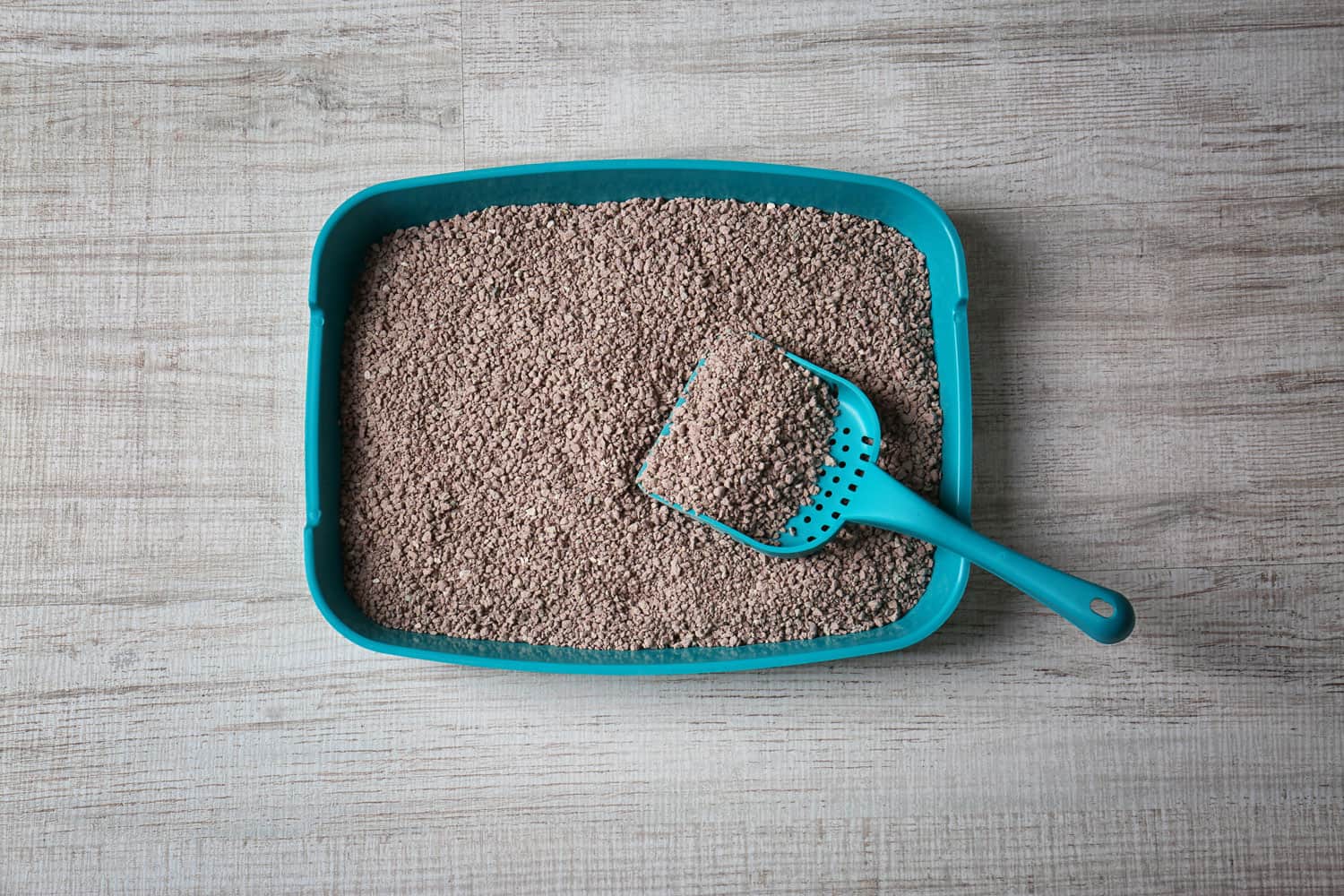
Overfilling the box can lead to litter (and waste) being kicked or spilled out, while underfilling might not absorb urine effectively, causing it to pool and potentially leak.
4. Cat's Behavior
Some cats have habits like digging or scratching, which can result in litter and waste being flung out of the box.
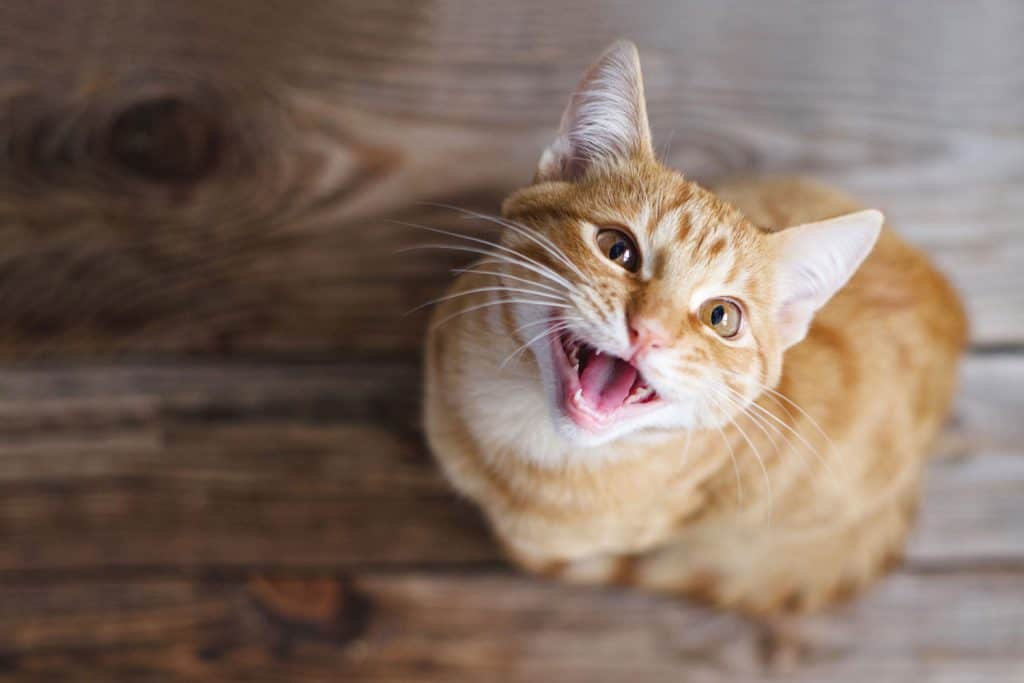
Other cats might prefer to do their business at the very edge of the box, which can also lead to messes outside the box.
5. Aging and Wear Over Time
Like any other item that sees regular use, a litter box can deteriorate over time. The material might degrade, resulting in cracks and leaks.
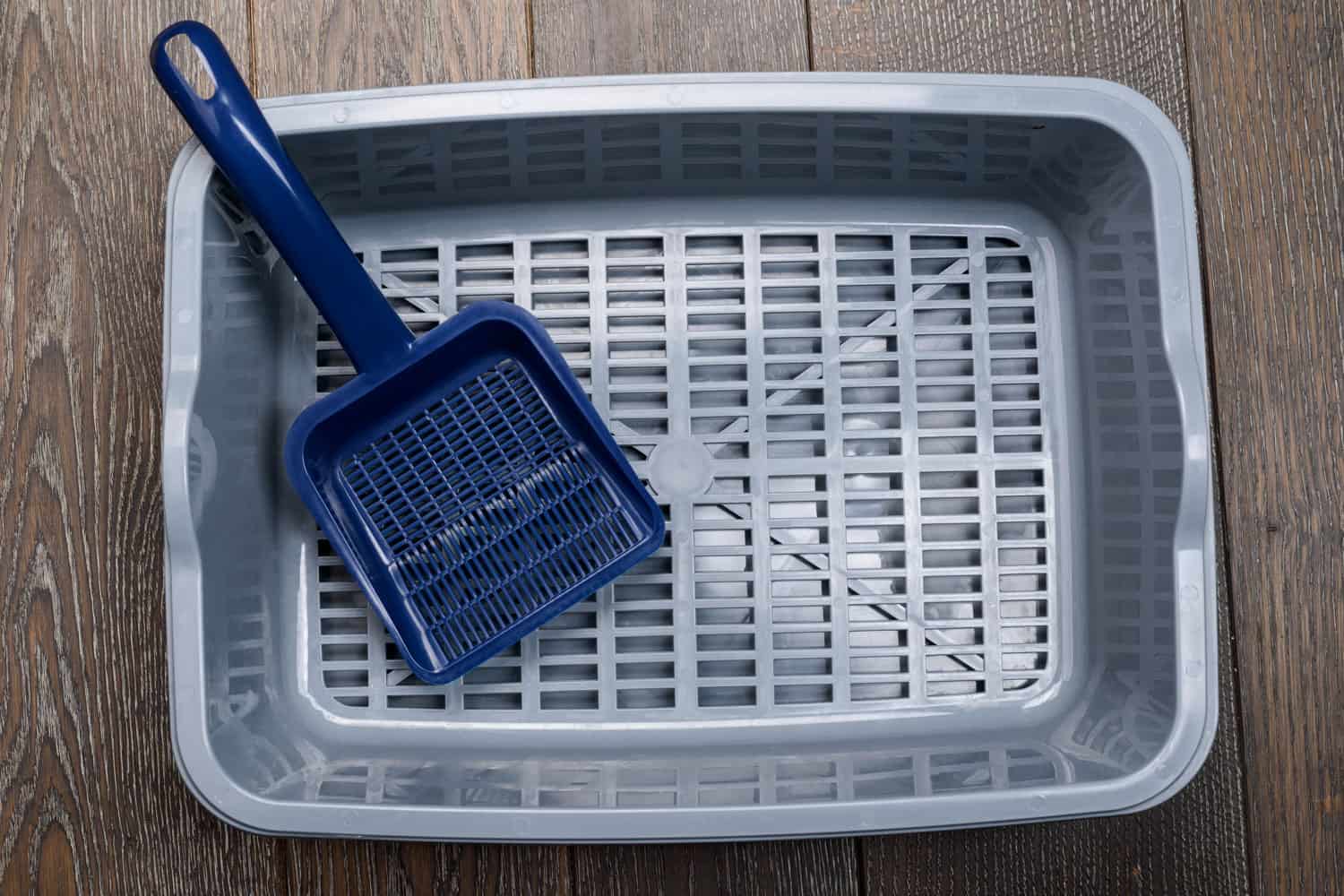
Regularly checking your litter box for signs of wear and tear can help catch leaks before they become a problem.
How to Test if Your Litter Box is Leaking
If you suspect a leak, there are a few ways to test your theory. Here are two of the most common methods:
Observation Methods
Start by watching your cat when it uses the litter box.
If your feline friend consistently seems to be doing business on the edge of the box or if it frequently scratches or digs at the sides or bottom, these could be signs of a leak.
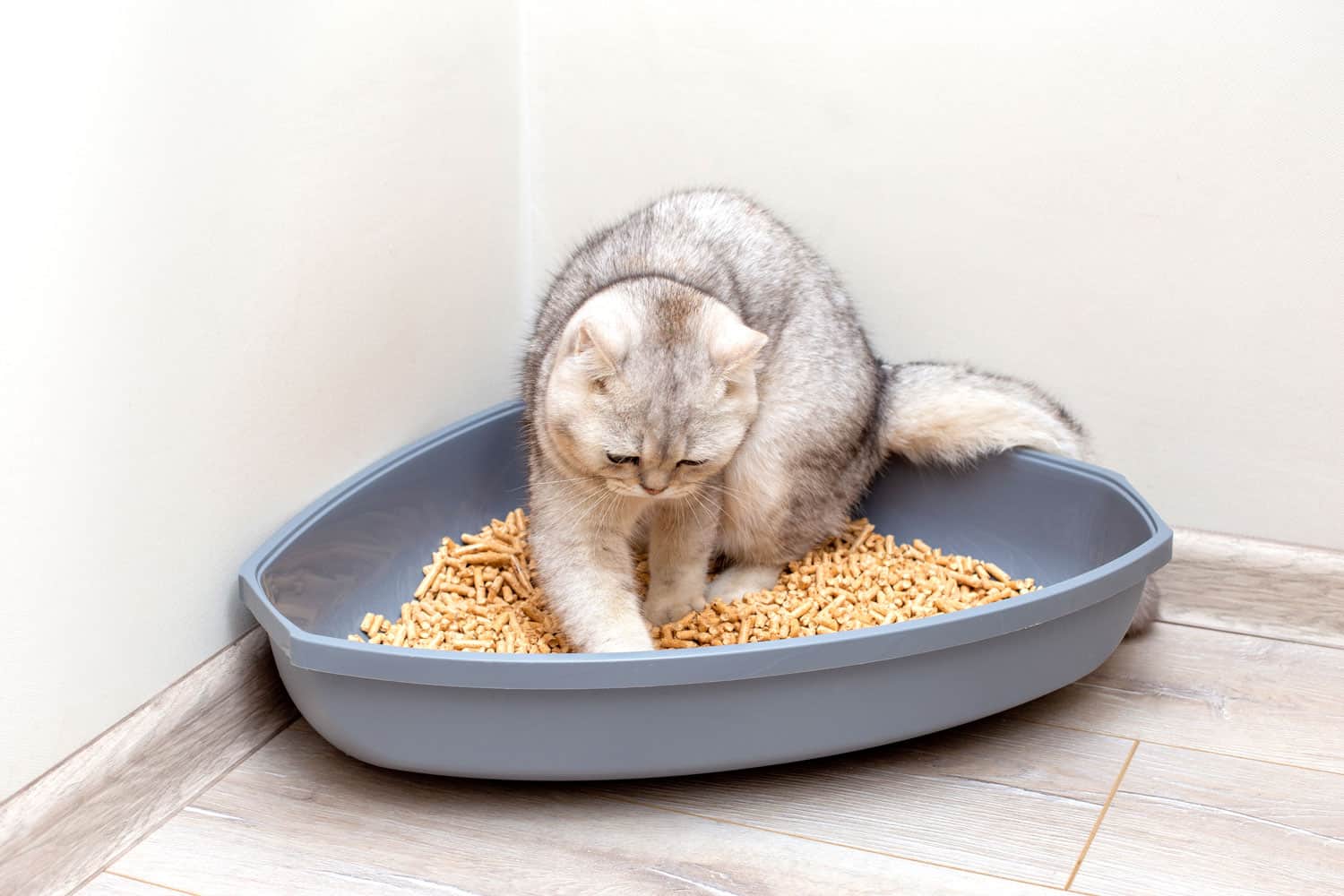
Additionally, after your cat has used the litter box, thoroughly inspect the surrounding area for any wet spots.
Be sure to check underneath the box as well as around it.
Consistently finding wetness even after freshly cleaning the litter box indicates a strong likelihood of a leak.
Physical Tests
If the observation method doesn't confirm or deny a leak, try a more definitive test.
Empty the box of litter and clean it thoroughly, then fill it with a few inches of water.
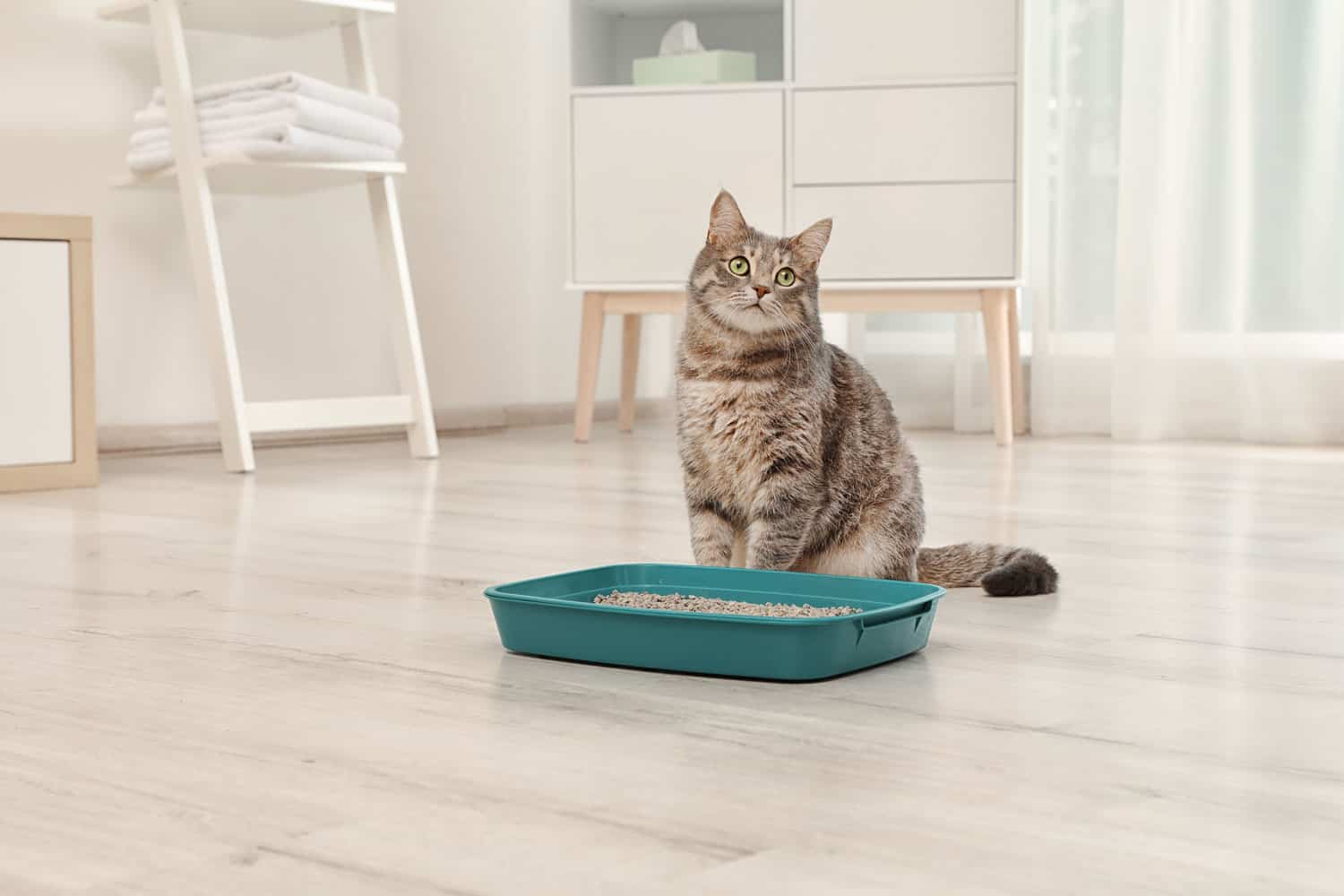
Leave it for several hours or overnight, and then check again for wet spots underneath and around the box.
This test can help you spot even small, slow leaks that might be hard to notice otherwise.
How to Fix a Leaking Litter Box
If you've confirmed a leak, don't panic—there are solutions. Here are some short-term and long-term fixes that can help you address the issue:
Short-term Solutions
1. Cleaning
Proper and timely cleaning is the first step in addressing a leak.
Cleaning the mess immediately prevents odors from setting in and can sometimes resolve minor leaks due to overfilling or spills.
2. Patching
If you find a small hole or crack in the litter box, patching it up can be a viable short-term solution.
Click here to see this repair patch on Amazon.
You can use waterproof tape or a patching kit that is safe for pets.
Long-term Solutions
1. Replacing the Box
Sometimes, the litter box itself is the problem. If it’s old, damaged, or poorly designed, the best solution might be to replace it entirely.
Invest in a high-quality litter box that is the right size for your cat and made from durable materials.
Click here to see this litter box on Amazon.
2. Changing the Litter Type
The type of litter you use can also affect leakage.
Some litters are more absorbent than others, and changing to a more absorbent type can sometimes resolve leakage issues.
Click here to see this cat litter on Amazon.
Additionally, some cats prefer certain types of litter and will use the box more properly with a litter they like.
3. Training Your Cat
Sometimes, the way your cat uses the litter box can contribute to leaks.
If your cat digs too aggressively or has other behaviors that cause spills, you may need to spend some time training them to use the box more gently.
This can include positive reinforcement when they use the box properly and providing them with alternative outlets for their digging behavior.
Keep Your Litter Box Leak-Free and Your Cat Happy
A leaking litter box can indeed be a hassle, but it's a problem that can be solved with a little observation, patience, and proactive care.
By being attentive to your cat's needs and maintaining their litter box, you can prevent leaks and keep your home—and your furry friend—clean and happy.
Remember, a well-maintained litter box is more than just a sanitary requirement—it's a sign of your commitment to your cat's wellbeing.
By keeping up with regular maintenance, you can ensure a comfortable and safe environment for your feline friend.
For more in-depth discussions and insights on litter boxes, check out our informative articles below.




